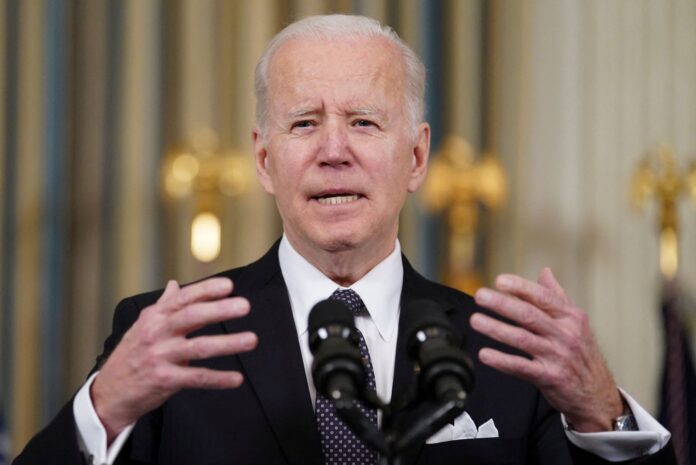When it comes to raising the national debt ceiling, President Joe Biden appears to be considering all his options – even those that sidestep the need for bipartisan negotiation.
On Sunday, President Biden suggested that he might be able to raise the debt ceiling without requiring a consensus from Congress. “I’m looking at the 14th Amendment as to whether or not we have the authority — I think we have the authority,” Biden stated during a news conference in Japan, just before wrapping up his attendance at the G7 summit of world leaders.
The main crux here revolves around whether invoking the 14th Amendment would withstand any potential legal appeals and, importantly, whether it could be actioned in time to avoid a default on the nation’s debt. Despite these considerations, President Biden remains hesitant to give a firm commitment to such a course of action.
A report last week indicated that Biden administration officials have cautioned progressives about the risks involved in invoking the 14th Amendment, suggesting it’s not an option currently being keenly pursued.
Under the 14th Amendment, America’s public debt “shall not be questioned.” This stipulation has led some to argue that Biden possesses the power to unilaterally raise the debt ceiling.
Despite the constitutional leeway, Biden conveyed both a spirit of cooperation and contention on Sunday. He expressed optimism about Congressional leaders indicating a willingness to negotiate a deal to raise the debt ceiling and avoid a looming default scheduled for June 1.
However, he didn’t shy away from directing criticism towards Republicans. He expressed his worries about them possibly enforcing a default by taking “outrageous” actions. He placed responsibility for a lack of agreement squarely on GOP shoulders, asserting that he had fulfilled his part of the deal.
When Fox News correspondent Peter Doocy questioned if Biden would consider himself at fault if the nation defaults, the President replied, “On the merits, based on what I’ve offered, I would be blameless.” He then suggested that some Republicans might be strategically seeking a default to tarnish his reputation, thereby reducing his re-election chances.
House Speaker Kevin McCarthy responded with frustration, expressing disappointment at what he perceives as Biden’s shifting demands. McCarthy also rejected the idea of tax increases, which Biden hinted might still be on the table, suggesting that the President seemed more inclined towards deadlock than towards reaching a deal.
However, one expert argues that the issue stretches beyond just the scope of Biden’s power. David Kamin, a former deputy director of the White House National Economic Council under Biden, noted the potential for significant economic damage given the uncertainties surrounding this constitutional route. He argued that Congress taking decisive action, as they’ve done in the past, is the only clear option to avoid economic damage with confidence.
The nation watches as President Biden navigates these complex fiscal waters. At stake is not only our economy but also the fabric of our democratic processes and the checks and balances designed to ensure robust bipartisan decision-making.


